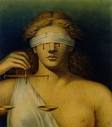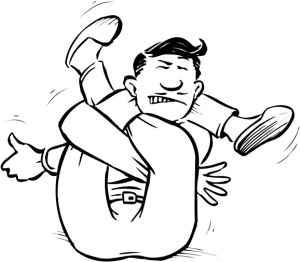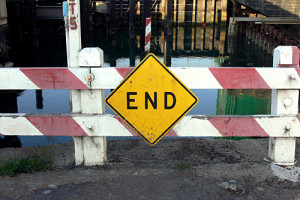Category Archives: endings
Elements of a great ending
By Joe Moore
We’ve had plenty of posts here at TKZ about story beginnings. As a matter of fact, we invite submissions and devote the month of March to critiquing the first page of your stories. Beginnings are so important because they set the hook and grab the reader.
But what about endings? Are they as important as beginnings? After all, they occur after the big finale, the gripping climax, the roaring finish. In a way, we can think of endings as anticlimactic. And yet, they have an important function to perform in any story.
First, the ending should resolve anything that was not addressed during the climax. Once the conflict between the protagonist and antagonist is put to bed, what’s left must be brought together as a resolution in the ending. There must be closure to anything still hanging in the reader’s mind.
The ending also answers the story question. Since the story question usually deals with character growth or change, the ending must make sure the story question is answered.
Let’s say that the main character had to stand by and watch his family perish in a terrible accident that he inadvertently caused. The story question might be: will he ever forgive himself and have the courage to find love again and perhaps start a new family? The actual plot might deal with something totally different, but along the way he finds a new love interest. Once the climax occurs and the plot is resolved, the reader must discover the answer to the story question. It has to be made clear in the ending. In most stories, the main character takes a journey, whether it’s physical, mental or spiritual. How he completes the journey is the answer to the story question and must be resolved in the ending.
Another function of the ending is to bring some sense of normalcy back to the characters’ lives. It can be the restoring of how things were before the journey began or it can be the establishment of a new normal. Either way, it must be resolved in the ending. Our hero has found a new love and plans to start a new family. It’s his new normal and the reader must understand the changes that he went through to establish the new normal.
If the story contains a theme, message or moral, the ending is where it should be reinforced. Not every story has an underlying theme, but if it does, it must be clarified in the ending. This way the reader can close the book with the feeling that the theme or message was accomplished or confirmed. The main character(s) got it, and so did the reader. Even if the reader doesn’t agree with the message, it has to be confirmed in his or her mind what it was, and if it was completed.
The end resolution of the theme or message must be in sync with the story. For instance, if the theme is to accept a spiritual belief in the existence of a greater power in the universe, the plot and characters must touch upon or address the idea somewhere along the way so the end resolution confirms that they have changed their beliefs to support or at least admit to the theme.
The ending should also cause readers to feel the way the writer intended them to feel. Whatever the emotional response the reader should experience, the ending is where it’s confirmed. After all, the writer is the captain of the ship. He steers the story in a specific direction—a direction he wants the reader to go. The reader is a passenger along for the journey. It’s important that in the end, the ship dock at the right port. Worse case is that it doesn’t dock at all. That’s the result of a weak ending.
The ending is how you leave your reader. It’s the last impression. And it just might be the reason the reader wants to buy your next book. Or not.
Have you been disappointed with an ending to a book or a movie? Did you invest the time only to come away feeling betrayed? And what book or movie do you feel contained all the elements of a great ending and left you wanting more?
How to Write Your Last Page
It’s been a heady couple of weeks doing first pages here at TKZ. So I thought, just to catch our breath and balance things out, maybe we should go the other way for a moment.
What about your last page?
I love the Mickey Spillane quote: “The first page sells your book. The last page sells your next book.”
How true that is. How many times have we begun a novel or movie, only to be let down when the book is closed or the credits roll?
I love beginnings. Beginnings are easy. I can write grabber beginnings all day long. So, I suspect, can you.
But endings? Those are hard.
Why? First, because with each passing day another book or movie has come out, another ending has been rendered. So many great endings have already shown up. We who continue to write have the burden of trying to provide satisfactory surprise at the end when so much ending material is already out there.
Second, our endings have to tie things up in a way that makes sense but is also unanticipated. If the reader can see it from a mile away, the effect is lost.
I like what Boston University writing teacher Leslie Epstein said in a recent Writer’s Digest piece (“Tips for Writing and for Life,” WD March/April 2010). When asked if a writer must know the ending before he starts, Epstein says, “The answer is easy: yes and no. One must have in mind between 68 and 73 percent of the ending.”
Epstein’s having a bit of fun here, but his point is solid. If you have the ending 100% in mind, you’re in a straitjacket, unable to let your story sufficiently breathe, or twist, or turn.
OTOH, if you don’t have any idea where you’re going, you could easily fall into the meander trap, or the backed-into-a-corner trap.
There are some very helpful techniques for writing a great ending. Joe Moore discussed some of these last month. Type “endings” in the search box in the upper left of the blog, and you’ll get other thoughts by my blog mates. And I’ll humbly mention that I have also treated the subject in Plot & Structure.
But rather than focusing on principles, today I want to offer you my own personal approach to writing endings. It’s called Stew, Brew and Do.
Why is it called that? Because I made it up so I get to name it.
Here’s how it goes:
Step 1: Stew.
I spend a lot of time at the end of a manuscript just stewing about the ending. Brooding over it. I’ve got my final scenes in mind, of course, and have written toward them. I may even have written a temporary ending. But I know I won’t be satisfied until I give the whole thing time to simmer. I put the manuscript aside for awhile, work on other projects, let the “boys in the basement” take over.
I tell myself to dream about the ending before going to bed. I write down notes in the morning.
Step 2: Brew.
When I am approaching the drop dead deadline, I continue to outline ending possibilities. I will have files of notes and ideas floating in my head. When I know I have to finish I use Brew in both a practical and metaphorical way.
I take a long walk. There is a Starbucks half an hour from my office. (In fact, there is a Starbucks half an hour from anyplace in the world). I put a small notebook in my back pocket and walk there and order a brew—a solo espresso. I down it, wait a few minutes and then start writing notes in the notebook.
Then I walk another half an hour, to another Starbucks (I’m not kidding). There I make more notes. If I have to, I have another espresso. I am a wild-eyed eccentric at this point, but I do have ideas popping up all over the place.
Step 3: Do.
I go back to my office and write until finished.
Well, it works for me. I like most of my endings, but they were very hard work to get to. But hey, that’s good. If this gig was easy, everybody’d be doing it, right? Be glad it’s as hard as it is. Your efforts will pay off.
So what works for you? Do you find endings hard? Or do they roll out of your imaginary assembly line fully functioning and ready to go?
What are some of your favorite endings? Or better yet: what endings, to movies or books, would you change?
Justice
by Clare Langley-Hawthorne
http://www.clarelangleyhawthorne.com/
One of the reasons many of us enjoy crime fiction is the satisfaction of seeing  something so rarely provided us in our real lives – justice. As a crime writer I feel it is my duty to play fair with the reader but that doesn’t always mean that at the end of my books the perpetrators get their ‘comeuppance’.
something so rarely provided us in our real lives – justice. As a crime writer I feel it is my duty to play fair with the reader but that doesn’t always mean that at the end of my books the perpetrators get their ‘comeuppance’.
At the end of The Serpent and The Scorpion for instance (and I’ll try to avoid spoilers here) I felt that if I was to remain true to the politics of the time I could have no other ending but, nevertheless, the injustice of the slippery Machiavellian world of the British Empire galled me.
As a reader I have no problem with these sort of endings – where justice is impossible in the circumstances – it may be frustrating but I’m okay with it so longs as it rings true. What ruins a good crime novel for me, however, is the feeling of being cheated at the end – that the writer has not played fair and that the resolution provided is a let down. On TKZ we blog a lot about the craft of writing a mystery and I think as a writer in this genre I owe it to my readers to grapple with the concept of justice in each of my books – be it in terms of retribution, punishment or some other form of satisfaction. Although we want the perpetrator to get what he or she deserve I think there’s more to it that that – I think many of want to feel as though ‘right’ has been done.
So what are the parameters for ‘justice’ that I use to help guide me when I am crafting my novels?
- I like to consider that the effort taken in solving the mystery is commensurate with the resolution (no sudden appearances at the end of a vital clue that negates all the protagonist has done).
- I want the final conflict to have emotional resonance (no lightning bolt hitting Doctor Evil by mere chance) so the reader feels satisfied.

- I like to place the mystery in an overall societal context so the reader gets to understand just how the system works (or doesn’t work) and what social, political or economic conditions dictate how the perpetrator will be punished (or not) or conversely how the victim is treated. [Okay, okay, so this is just the history nerd in me…]
- I also want to consider what kind of ending makes the most sense and feels the most satisfying to me, both as a reader and a writer. I don’t like endings that feel rushed or abbreviated – or ones that leave too many threads hanging to be satisfying.
- And finally – at the end if justice cannot be done then as a writer/reader I better damn well know why…
So what makes an ending satisfying to you? Do you agree that most fans of crime novels like to see some kind of ‘justice’ done at the end of a book? What kind of endings fail to live up to your expectations?


